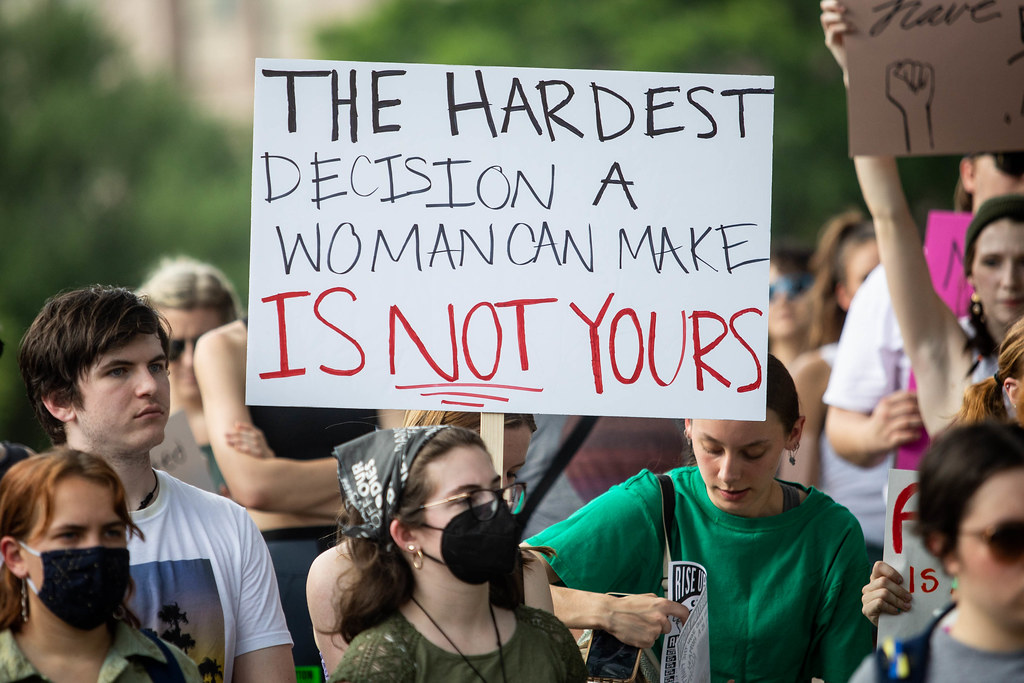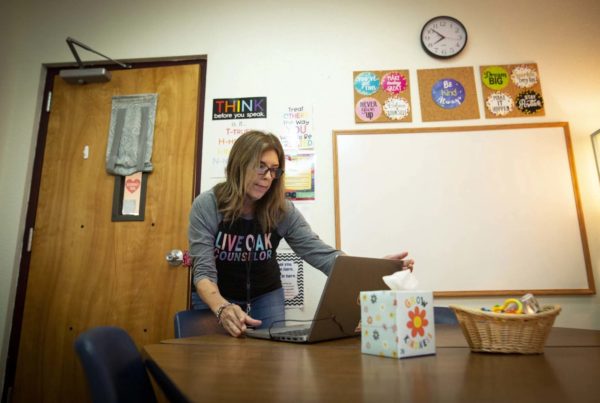After Kansas voters rejected a proposed amendment that would have cleared the way for abortion restrictions in the state, abortion rights advocates wondered if it might be possible to adapt the popular vote approach and replicate the result in other red states.
But advocates for abortion rights in Texas are likely to have to take a completely different tack, reports Gromer Jeffers Jr., political reporter for the Dallas Morning News. Listen to the interview above or read the transcript below.
This transcript has been edited lightly for clarity:
Texas Standard: Let’s talk about what you’ve been covering. Maybe you need to lay the groundwork because there’s been a lot of talk about the success of abortion rights advocates in Kansas. But can you give us an overview of what Kansas has done when it comes to abortion so we can sort of understand where this is all sort of coming from?
Gromer Jeffers: Well, here’s the situation in Kansas, which is a red state – a heavily red state. Right before Roe versus Wade was struck down. You had a situation where voter registration was slightly more men. When after June 24, they had a bit of a surge in voter registrations. And apparently most of that – 70% of that – were women. And then it led to turnout on a referendum on abortion, which, as you know, the state voted for abortion rights. But it’s a different situation than the one here in Texas.
A lot of people would say, why not a referendum for Texas if this worked in Kansas? Let’s do something like that here.
There you go. And therein lies the different political dynamics. Kansas – their elected leaders put that question on the ballot. It’s almost impossible for that sort of question to get on the ballot here in Texas because Republicans control the executive offices and both chambers of the Legislature. And there is literally no way that they would put that sort of question on the ballot. That’s why you won’t see that sort of referendum on a Texas ballot, because conservatives and Republicans control the levers of power here.
if a referendum isn’t likely, how is the pro-abortion rights camp approaching this?
Well, you have to aim at the people that are making the laws and they’re controlling the politics here in Texas. And that means statewide officials and legislative officials. Now, that’s a big ask, right? Because you’re talking about a lot of campaigns that you’re trying to impact. But first and foremost, I think they’re looking at the governor’s race. If they can make a statement by either beating Abbott or causing great problems without making the race close, then maybe that’s a building block. And the same with the attorney general’s race. Ken Paxton, the Republican incumbent who’s considered the weak link because of his legal troubles. If they can take a swing at home and take a swing at Greg Abbott and see how it goes, that’s where they can begin the process of turning things around in Texas.
We’ve been talking, though, about the sort of political will versus the mechanics that could bring that to bear on state law. We don’t have that mechanism. We certainly don’t have that political infrastructure like Kansas did. So what did the analysts you spoke with have to say about how this abortion issue might actually play out in November?
Well, that’s the big unknown. Republican consultants and Republican activists are confident that it won’t have the impact in Texas, that it will have in other places because of what you mentioned, the political will. And there are other issues that will impact those races that are on the ballot, such as inflation, the economy, you name it. There are other things that voters will be concerned about that compete with the abortion issue. Now, Democrats and progressives and abortion rights activists feel like they can take enthusiasm within the existing electorate and make some sort of statement. The tough part is, where would you make that statement? Will it be on congressional races? Will it be on the legislative races. And let me add this. Gerrymandered districts hurt with legislative and congressional races. So that also plays a role in all of this, that the that we have few swing districts in Texas. So it’s hard to impact the legislative process, especially at the beginning of a redistricting era.













